Choosing the best apps for stock trading can be tricky, particularly for those who are new to investing in stocks. It’s important to find a mobile app that meets your personal investment needs. Each app is rated in terms of trading cost, user interface, and trading tools. This article includes a detailed breakdown of the apps for share trading in 2023, along with what to consider when choosing the best app for you. For all of our latest guides and reviews visit our homepage.
>> Based in the UK? Check out our guide on the best trading apps in the UK.
Best Apps for Stock Trading 2023
Here are the top 21 stock trading apps in terms of cost, user interface, and trading tools:
- eToro
- Interactive Brokers
- Betterment
- Firstrade
- Robinhood
- Vanguard
- IG
- Trading 212
- e*Trade
- Charles Schwab
- M1 Finance
- Moomoo
- TD Ameritrade
- Fidelity
- Ally Invest
- Webull
- Tradestation
- Acorns
- Stash
- SoFi
Best Free Stock Trading Apps Reviews in Detail
eToro
eToro is the overall best for beginner stock traders with its strong crowdsourcing community. It offers a well-designed mobile app that is easy to navigate.
Beginner traders have access to a wide range of trading strategies to crowdsource and test out. This includes cryptocurrencies, forex, and CFDs.
Paper trading is available for beginners, with up to $100,000 of virtual money available.
On the downside, eToro’s research tools are limited on the app. Withdrawal and inactivity fees are also charged.

| PROS | CONS |
|---|---|
| Beginner-friendly | Limited research |
| Well-designed user interface | High withdrawal and inactivity fees |
| Strong crowdsourcing community | |
| Paper trading offered | |
| Free stock trading |
CFDs are complex instruments and come with a high risk of losing money rapidly due to leverage. 68% of retail investor accounts lose money when trading CFDs with this provider. You should consider whether you understand how CFDs work, and whether you can afford to take the high risk of losing your money. eToro USA LLC does not offer CFDs, only real Crypto assets available.
Betterment
Betterment is another good option for beginners and retirement investors. Its app is user-friendly and full of educational resources.
The app offers goal-oriented features and tools that are ideal for retirement investors.
On the negative side, customers on the free planning function are frequently asked to set up a premium account.
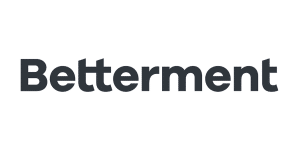
| PROS | CONS |
|---|---|
| Variety of portfolio options and customization | Users nudged to set up a premium account |
| No account minimum | |
| Low trading fees | |
| Fractional shares offered | |
| Goal-based tools |
Firstrade
If you’re after top-quality research tools then Firstrade has you covered. Firstrade has a versatile stock trading app with a great search function for beginners.
The app features a range of tools, including detailed trading data and ideas. There is a selection of educational tools available to branch out on strategies.
On the other hand, there is no two-step login feature and price alerts are unfortunately not included. There is also an account minimum of $500 which is pricey compared to other brokers.
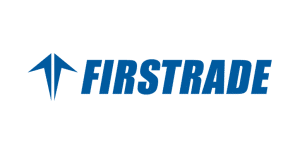
| PROS | CONS |
|---|---|
| Zero-fee stock trading | No two-step login feature |
| Intuitive app design | Minimum account balance |
| Large selection of research | |
| Educational tools available |
Robinhood
Robinhood offers a bare-bone app. This broker is best for beginners on a budget who are looking for a zero-fee platform.
Robinhood’s strength is in its simplicity. This bare-bone mobile platform is easy to navigate, which is perfect for new investors. Although there are no educational offerings, so any resources will have to be found elsewhere.
The platform offers very little market research and trading tools, which is a downside for more experienced traders.
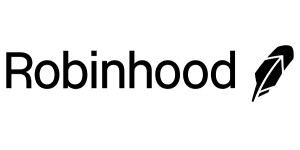
| PROS | CONS |
|---|---|
| Commission-free trades on stocks | No educational offerings |
| No account minimum | Customer support |
| Simple interface | |
| Access to popular cryptocurrencies |
Vanguard
Vanguard’s old-school style won’t appeal to experienced active traders, but is ideal for set-and-forget users. Vanguard is great for retirement savers and buy-and-hold investors. Its app is simple to navigate and allows beginner investors to easily grow to reach their investment goals. With only 10 technical indicator tools available on its charting software, it’s not ideal for active trading.

| PROS | CONS |
|---|---|
| Strong market research available | Small selection of charting tools |
| Simple platform and mobile app | |
| Large selection of inexpensive ETFs and mutual funds |
IG
While IG is a great forex trading platform, this is a pricey option for stock trading. IG has high fees for stock CFDs and a high minimum deposit.
Beginner traders will love IG’s user-friendly mobile app platform though. At the same time, experienced traders have access to a great range of charting tools and indicators.
Another downside is that IG’s account opening process tends to be slow and complicated.

| PROS | CONS |
|---|---|
| Trusted broker with a long-standing reputation | Slow account opening |
| Great research and educational tools | High stock CFD fees |
| User-friendly app platform | High minimum account deposit |
Trading 212
Trading 212 provides a powerful and robust platform that caters to traders at any skill level.
The platform offers a fully customizable interface, with user-friendly charting tools. Some key features are price alerts, latest market news, and watchlists.
There are plenty of useful educational resources for traders to familiarize themselves with the tools.
Trading 212 is unfortunately not available in the US, so US traders will have to look elsewhere.
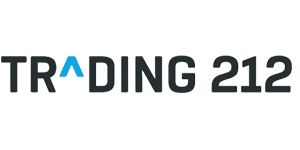
| PROS | CONS |
|---|---|
| Zero-fee stock trading | Not available for US traders |
| Seamless app experience | |
| Premium charting tools | |
| Low minimum deposit |
E*TRADE
As one of the most well-known discount brokers, E*trade offers users two top-quality mobile apps to choose from.
The Power E*TRADE platform has a sleek design with a diverse range of trading tools. The app features are easy to use, along with a fast execution speed for more accuracy.
If you're after a more passive investment approach, then you should look elsewhere. Less frequent traders will face higher commission fees.
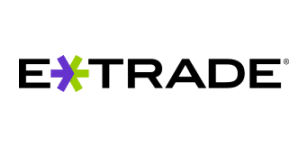
| PROS | CONS |
|---|---|
| Sleek app design | Limited educational resources |
| Zero-fee stock trades | Higher per-contract options fees for less frequent traders |
| Paper trading offered | |
| Wide range of research and analysis tools | |
| Prebuilt Portfolio |
Charles Schwab
Charles Schwab offers retirement investors high-quality research and technical tools. Its mobile app comes with detailed trading strategies and data.
The firm provides very efficient customer support through the app in case you need assistance.
On the downside, the Charles Schwab app only allows for trading on US and Canadian markets. If you’re an active trader then this isn’t the best choice for you.

| PROS | CONS |
|---|---|
| Excellent customer service | Not ideal for active trading |
| Extensive research tools offered | Only available for US and Canadian markets |
| Free stock trading offered | High fees for mutual funds |
M1 Finance
M1 Finance acts as an automated portfolio builder. The app platform allows clients to create a portfolio suited to their specific trading strategies.
There are no management or trading fees. Plus, you aren’t charged for any deposits or withdrawals.
M1 is not an advisory service, so there are no human advisors available for assistance. Another major downside is the inefficient order execution which means it isn’t ideal for active trading.
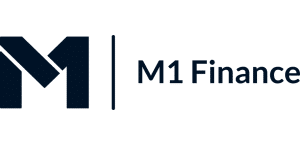
| PROS | CONS |
|---|---|
| Fractional shares available | Not great order execution time |
| No trading management fees | Limited help for financial goal-setting |
| Flexible portfolio building | |
| Useful dashboard features |
Moomoo
Moomoo offers zero-commission stock trading with no inactivity fees for US markets.
Opening an account is seamless and efficient. The mobile app features many high-quality analytical tools.
On the negative side, Moomoo only allows you to deposit and withdraw via bank transfers. Customer support is also poor as email is the only support option.
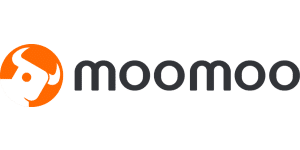
| PROS | CONS |
|---|---|
| Free stock trading | Only bank transfers for deposits and withdrawals |
| Fast and easy account opening | Limited customer support |
| Quality analytical tools |
TD Ameritrade
TD Ameritrade is another great choice for beginner investors. This broker stands out with its in-depth research and trading tools.
It provides both beginner and advanced mobile apps that cater to different investment styles. The apps feature great educational resources to help new investors to get started.
Free paper trading is also offered for beginners, as well as 24/7 hands-on customer service.
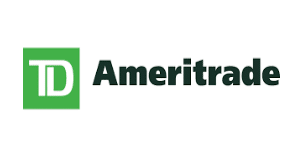
| PROS | CONS |
|---|---|
| Low-cost accounts | Some trading tools differ between mobile app platforms |
| Beginner and advanced mobile apps | |
| Extensive educational resources for beginners | |
| 24/7 reliable customer service | |
| Paper trading offered |
Fidelity
As a leading full-service broker, Fidelity offers several managed investment options for beginners to choose from. This includes personalized portfolios and advisory services.
The brokerage provides a premium trading platform as well as research. It boasts commission-free trades of stock
While the app doesn’t offer many advanced charting features, this may be best for beginners who are looking for a basic platform.
Fidelity charges high broker-assisted fees though, which is a downside.

| PROS | CONS |
|---|---|
| Support for a wide range of account types | Limited advanced charting options |
| Extensive research and education resources | High broker-assistance fees |
| User-friendly mobile app interface | |
| Zero-fee stock trading | |
| Excellent trading tools |
Ally Invest
Ally Invest aims at both beginner and experienced traders in the US. The app offers top-tier self-directed portfolio management along with multiple technical tools.
If you're wanting to trade smaller amounts though then Ally Invest isn't the broker for you. You’ll also have to look elsewhere if you’re interested in more advanced charting tools.
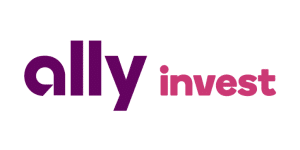
| PROS | CONS |
|---|---|
| Pair bank accounts with your investments in one app | Mobile app research somewhat limited |
| Simple and easy management | Limited trading tools |
| Zero-fee trading | |
| Wide range of educational resources | |
| Automated portfolio management option |
Webull
Webull's selling point is its mobile app platform. This app offers better platform flexibility than many of its competing brokers. Beginners will find the platform’s unique community-building features helpful for learning.
Webull’s downside is in its lack of research and educational tools though. The app's trading tools are better suited for active traders than for beginners.
This broker is best for experienced active traders dealing in stocks through a mobile app.
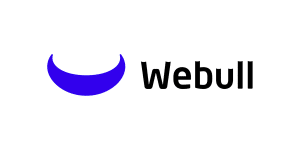
| PROS | CONS |
|---|---|
| Zero-fee stock trading | Limited securities available |
| Strong crowdsourcing community | Limited customer service |
| Versatile mobile platform | |
| Paper trading available |
Tradestation
TradeStation’s app platform is an excellent choice for experienced and professional traders. It focuses on market data and trade executions.
A downside for beginners is the steep learning curve. TradeStation's mobile app requires you to learn a new programming language.
They provide a range of resources to help you through, and improving your skills will come as an advantage at the end of the day.

| PROS | CONS |
|---|---|
| Seamless mobile app | Steep learning curve |
| Excellent charting and analysis tools | Only available to US citizens |
| Ideal for active trading | |
| Wide range of educational resources |
Acorns
Acorns is a great stepping-stone for beginner investors looking to build healthy financial habits. Its optional Round-Up app feature automatically tracks your purchases and invests your spare change.
While micro-saving is its main appeal, Acorn is also ideal for retirement and custodial investment accounts.
A downside is the app’s high management fees. It also charges commission fees for some trades, which is surprising for discount online brokers these days.
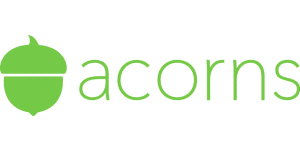
| PROS | CONS |
|---|---|
| Easy-to-use app | Expensive management and trade fees |
| No account minimum | Small investment portfolio |
| Robo-advisor ideal for beginners | |
| Micro-savings feature | |
| Good educational resources |
Stash
Stash is another great stock training app for beginners to look into.
The app allows you to build a custom portfolio with value-based investment options. Stash has designed a beginner-orientated mobile platform to simplify the process of selecting stocks.
While there is no account minimum, management fees are higher than competing platforms. There is also a lack of human customer service and assistance.
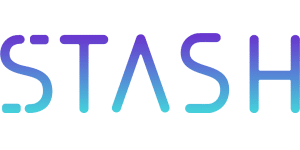
| PROS | CONS |
|---|---|
| No account minimum | Lack of investment management and human guidance |
| Valued-based offerings | High management fees |
| Educational resources | |
| Fractional shares offered | |
| Automated round-up investing feature |
SoFi
SoFi, short for Social Finance, offers a convenient mobile app to buy and sell stocks on. Fractional shares are also available for beginners starting on a budget.
The app offers commission-free trades and fractional shares in an account with a low $1 minimum balance requirement.
SoFi Active Investing is aimed at beginner investors, so experienced traders looking for in-depth stock analysis should look elsewhere.
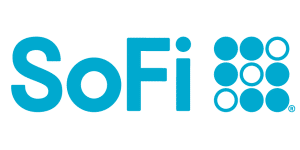
| PROS | CONS |
|---|---|
| User-friendly platform | No tools for in-depth stock analysis |
| Fractional shares available | |
| Low account minimum and fees |
Best For Beginners
eToro is the overall best app for beginners. The app has a strong social community in which crowdsourcing is promoted. Beginners have access to a broad range of trading strategies to copy. The eToro app is well-designed and easy to navigate. Paper trading is also available for beginners to test out up to $100,000 of virtual money.
Best Free App
eToro is once again recommended as the best free app for traders on a budget. Opening a trading account is free of charge. Plus, traders get to enjoy zero trading commissions.
Unlike completing app platforms, eToro lets you build a diverse stock portfolio without charging any non-trading management fees.
How To Choose a Stock Trading App?
Safety
Safety is one of the most important things to keep in mind when choosing a share trading app. The best mobile app platform should have strong security measures in place to protect your account. Features such as two-factor authentication should be a necessity.
Fees & Commissions
Different stock brokers charge a range of different trading and non-trading fees. If you’re a retail investor who is just getting started then it’s best to choose one with little or no fees.
It's important to know what commission rates your broker charges in advance. Annual fees are better than per-transaction fees. This avoids a broker earning commissions through unnecessary transactions.
What Type Of a Trader Are You (Long-Term vs Active Intraday Traders)
Active traders buy and hold securities for only seconds or minutes. This involves taking advantage of brief fluctuations in the price of an asset.
Long-term investing is more passive. This involves buying and holding securities for months or years.
Different brokers might give incentives for different styles of trading. You should make sure that a broker’s commission fees suit your trading style.
Regulation
Regulated brokers will be registered with at least one financial regulating body in their country. Each broker needs to follow the rules and regulations set out by these bodies.
Assets and Stocks Available
There is a range of investment products available for you to put your money into. The most common assets are stocks, bonds, and options. You need to choose a brokerage that offers the investment products you're interested in.
Device Compatibility
A brokerage app should be compatible with all iOS and Android devices. You should be able to manage all investments and trades via your mobile phone. The software should be versatile enough for you to easily track your buy and sell orders.
Desktop vs Mobile (what to expect – user experience)
With the availability of mobiles on-hand, the way people interact with their trading accounts has changed. This has forced brokers to offer mobile apps along with traditional desktop platforms.
Brokers nowadays aim to give users the same experience across both desktop and mobile platforms. This includes sharing watch lists and market data. Some apps manage to offer complex portfolio analysis and advanced charting tools as well.
Account Minimums
Most online brokers have no minimum deposit requirements for opening a brokerage account. Others might require you to deposit several thousand dollars before you can start trading.
Order Types
Trading stocks in a fast-moving market can result in profit loss. It’s important to understand order types beyond the traditional buy and sell orders.
- Market Order – A market order is a trade order to buy or sell stocks at the market’s current price. You don’t control the amount paid for the stock trade because the market sets the price.
- Limit Order – A limit order is a trade order to buy or sell stocks at a set price.
- Stop Order – A stop order, or stop-loss order, is a trade order that sells a stock once it reaches a specific price. This is designed to limit an investor’s loss.
- Stop-Limit Order – A stock-limit order is a conditional order that requires placing two prices. This includes a stop price and a limit price. The order becomes a limit order when the stock reaches the stop price.
- Trailing Stop Order – A trailing stop order is based on the percentage change in market price, not a specific target price. Stock will be sold when it increases by a set percentage.
Account Types
There are several different types of brokerage accounts. The most common types are cash accounts, retirement accounts, and margin accounts.
Make sure you are aware of which accounts your broker offers. Different brokerages might have investment minimums for different types of accounts.
Order Execution
Order execution is when your broker carries out a buy or sell order on your behalf. All your orders are sent via your broker to be executed. It's best to have a broker with fast order execution, especially if you’re interested in active trading.
Trading Tools & Research
A good stock trading app will offer its customers a wide selection of trading tools to make the most of every trade.
It’s important that you have access to strong market research. Thorough research is often the key to successful trading. If you're a beginner, you'll need advice on how to analyze data and diversify your portfolios.
A good app will have a well-designed and intuitive trading platform. Some key features to look for are watch lists, charting tools, price alerts, and news.
Customer Service
It’s important to have easy access to customer support. This especially applies to beginners.
Make sure that you can quickly get in touch with service staff if you require urgent advice. A good brokerage platform should offer a strong tech support team.
User Interface
A good app should be able to present complex concepts simply. It should be easy to navigate. Often the apps with the best user interface choose to focus on a few key features.
Different trading styles will have different needs. It’s best to look for an app that offers features suited to your particular trading needs.
Using an Trading Mobile App
A trading app is a great way to easily access your trading accounts on-the-go. A mobile app offers a mini version of a desktop trading platform.
Traders use apps to buy and sell stocks, as well as various other investment products.
Who needs a brokerage account?
Anyone who wants to invest or trade on a stock exchange needs to have a brokerage account. This is how you place buy and sell orders. Brokerage accounts allow you to manage your investments on-the-go.
How much do stock trading apps cost?
Stock trading apps and brokers charge various trading and non-trading fees. You should always look for a stock trading app with low trading and non-trading fees.
How much do I need to start trading stocks?
With the right broker, it’s possible to start trading with as little as $10. Trading commission fees for stocks have dropped to zero at nearly all brokers in recent years. This means you can buy and sell stocks for free.
Are These Stock Trading Apps Safe?
Online trading is safe if you use a regulated online stock broker and manage your risk. Trading stocks online is inherently risky, so you should never invest more money than you are willing to lose. It’s best to start with a small amount of money.